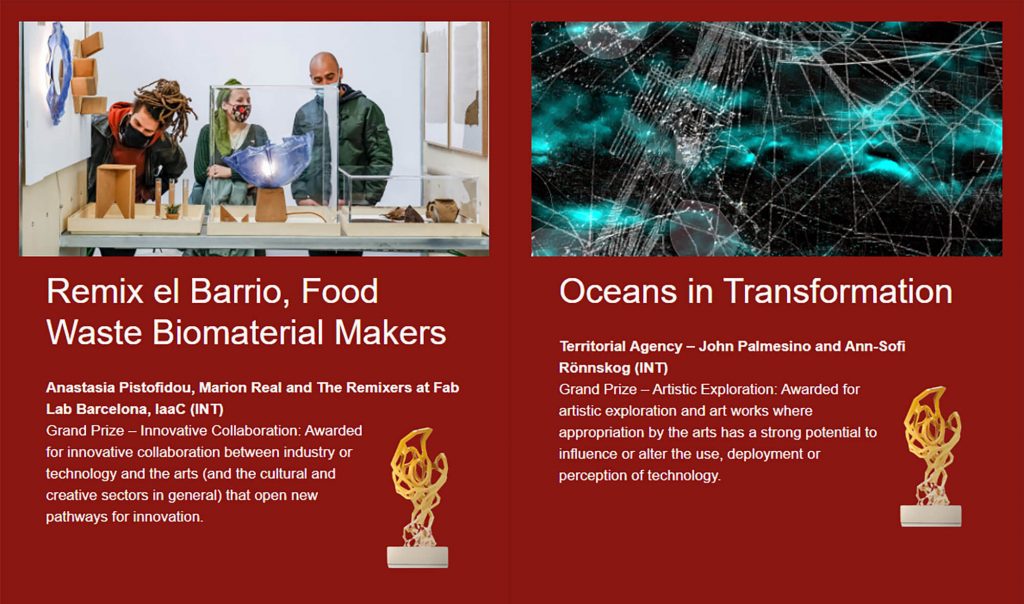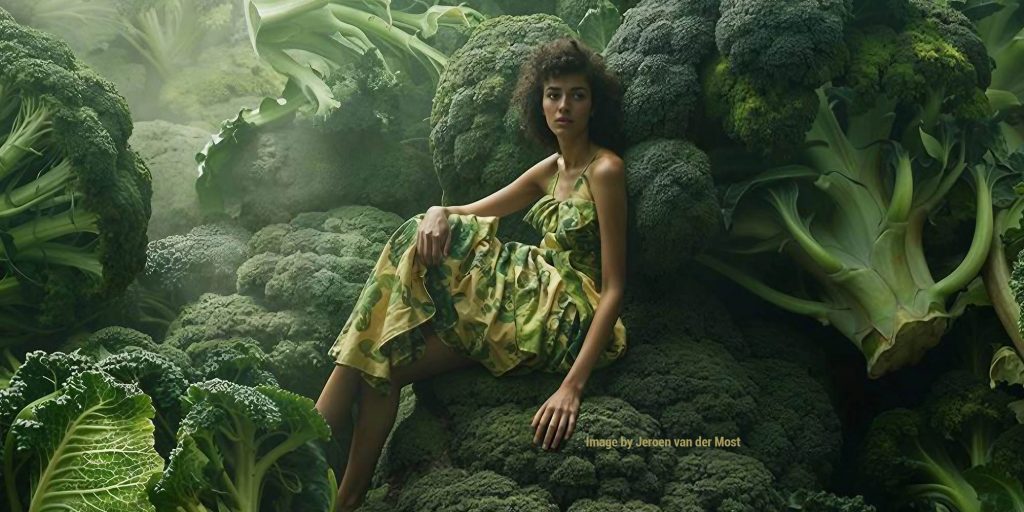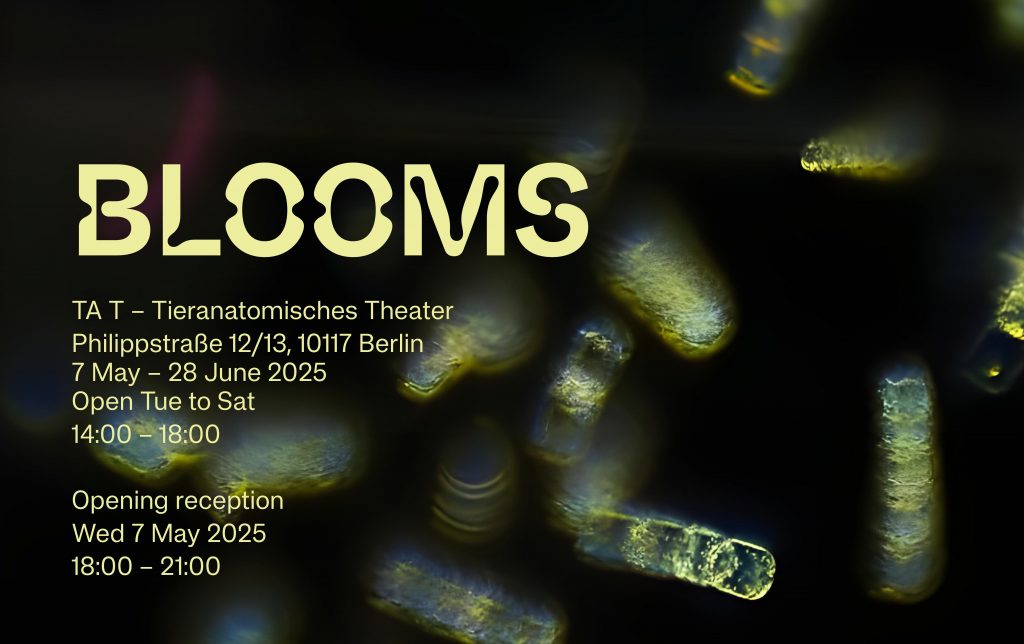STARTS Prize 2021: who are the winners?
One key element of the STARTS Initiative is a prestigious award generously endowed with €40,000 in prize money: each year, a yearly competition is held to single out for recognition innovative projects at the nexus of science, technology and the arts, that have what it takes to make a significant impact on economic and social innovation.
The two STARTS prize-winners each receive €20,000 and are prominently featured at Ars Electronica and other events of the consortium partners BOZAR, Waag, INOVA+, T6 Ecosystems, French Tech Grande Provence and Frankfurter Buchmesse.
This year, 805 projects out of 1564 applications were directly submitted to the STARTS Prize 2021. Of course, for the second time in the history of the prize, jury members from all over the world had to meet virtually to make the final selection.
The natural systems which we are a part of and depend on, the built environment, and the fragile state of online privacy were some of the themes that strongly emerged. Building on this, the projects that the jury chose to highlight in both their nominations and awards, dealt with the all the networks within which humans live and interact, and ultimately, the rethinking of our present and future on the planet.
1st Grand Prize
The first Grand Prize was awarded to Oceans in Transformation: for artistic exploration into how appropriation through the arts has a strong potential to influence or change the use, deployment, or perception of technology.
Oceans in Transformation is a strong call to collaborate across disciplines to deepen our knowledge of the oceans and to act together to safeguard the future of our living ecosystems. Installed inside the Church of San Lorenzo in Venice, in a place that can remind us of the wonderful and fragile balance between man and nature, the collaborative platform Ocean Space presents the multimedia exhibition conceived by the collaboration between the architects of the Territorial Agency, TBA21- Academy, and e-flux Architecture. The work is the result of a three-year multidisciplinary investigation and research project on the state of the oceans in transformation, linking science, art, and politics, producing shared images of the oceans, earth sciences and remote sensing datasets with satellite data. The project is based on a combination of satellite data, GPS, AI, sonar scans, and climate models produced by different actors and research disciplines, revealing the extent of the impact of human activities on the oceans. The project makes visible what is ultimately at stake in the Anthropocene, which is the health of our watery planet, featuring rapid sea level rise and marine degradation. Intensive fishing, deep-sea mining and various other activities represent dangerous anthropogenic pollution of the oceans that can irreversibly alter our ecologies. The project is a large-scale collaboration involving interaction with hundreds of scientists, research institutes, NGOs, environmental activists, policy makers and artists.
2nd Grand Prize
The second Grand Prize was awarded to the Remix el Barrio project, for an innovative collaboration between industry / technology and the arts (and more broadly the cultural and creative sectors), opening new avenues for innovation.
Remix El Barrio is a collective of designers who propose projects with food scraps using artisanal techniques and digital fabrication. They collaborate with agents of the Poblenou neighbourhood to promote a more local and circular ecosystem. In their manifesto they want to “promote artisanal manufacturing sites and creator/artisan cooperatives in the development of short-loop products, create direct synergies with neighbourhood actors, facilitate access and rehabilitation of abandoned sites, support logistics, and partnerships between local actors… “
The jury was very impressed by the wide range of beautifully recycled products made from waste – from dyes made from avocado pits to bioplastics made from orange peel to soaps made from used oil or paper made from coffee peels. Their initiative, Organic Matters, explores the intersection of design, biology, chemistry, technology, materials science, community, and self-sufficiency. This could be interpreted as a reformulation of the STARTS idea itself.
In addition to the two winning projects, the jury identified 10 Honorary Mentions and another 18 Nominations from all the submissions.
Discover all the winners and read more about each project!

Subscribe to our newsletter not to miss any news about the STARTS ecosystem.


